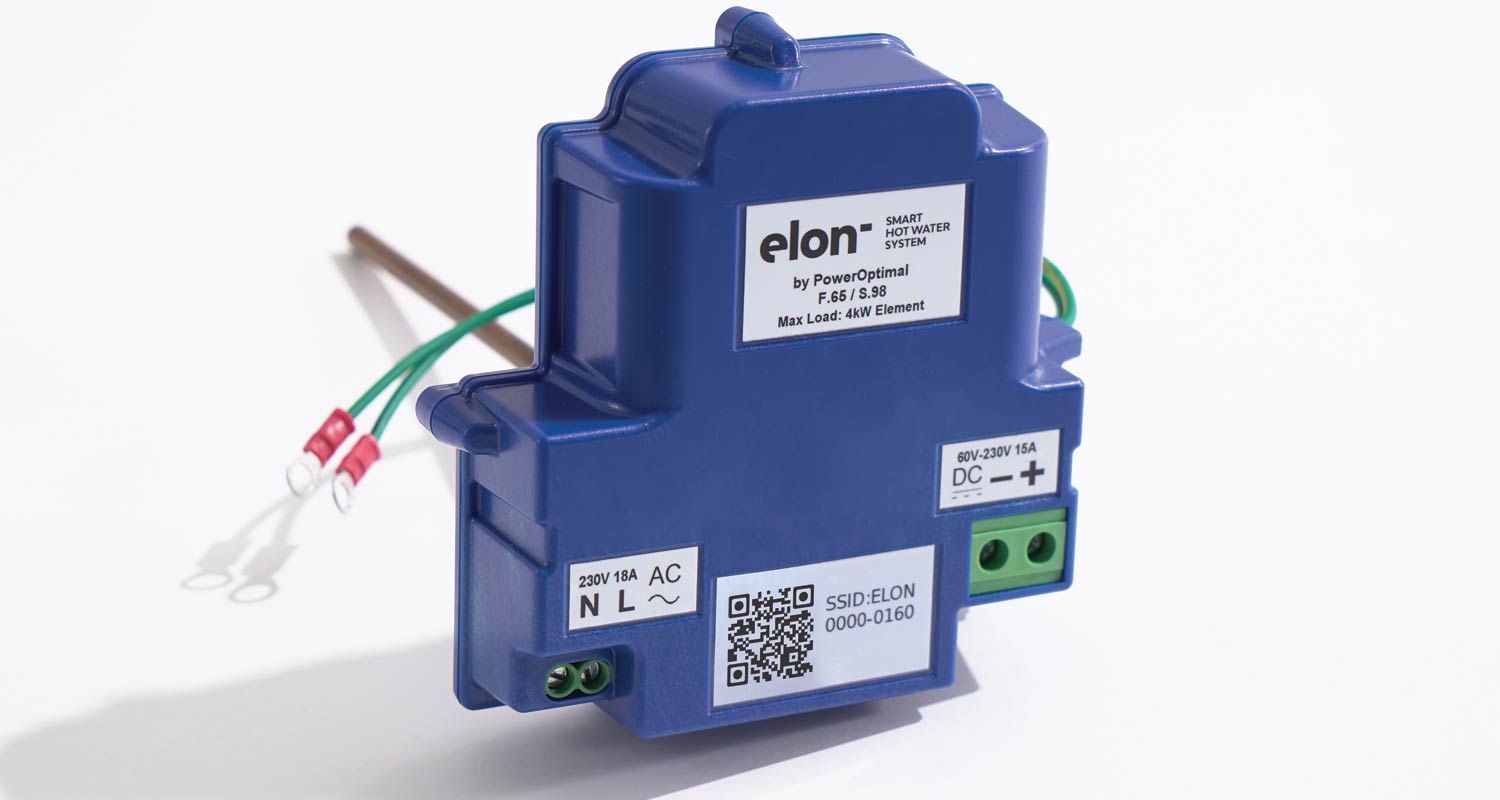 PowerOptimal’s Elon Smart Hot Water System
PowerOptimal’s Elon Smart Hot Water SystemMaking home geysers “smart” could help the insurance industry save millions by providing the ability to pre-empt geyser bursts that make up about 70% of all home insurance claims in South Africa.
This is according to Richard Fearon, co-founder and CEO at PowerOptimal, a technology start-up specialising in internet of things-based power-monitoring and power-saving solutions.
PowerOptimal this week launched its Elon Smart Hot Water System in partnership with Kwikot, a geyser manufacturer.
The Elon Smart device is an IoT-enabled thermostat that connects “natively” to both grid power and solar energy systems, allowing for the maximal use of renewable energy when it is available in combination grid power used as backup for when the sun is not shining. Elon Smart can come integrated into new geysers and can also be retrofitted onto installed Kwikot geysers.
According to Fearon, households can save up to 50% on their electricity spend using the Elon Smart system, but the data it collects is even more useful for insurance companies, for whom preventing geyser bursts and the collateral damage to ceilings and other household structures is a major priority.
“The gold is in the data. The insurance companies are struggling because there is not enough data, there are no alerts and all the systems are manual,” Fearon told TechCentral in a post-launch interview.
Data
The Elon Smart system has a frontend application where users can log in to monitor performance and change some system settings. A built-in Wi-Fi module allows the element to connect to the internet and feed data to PowerOptimal’s analysis engine, which is able to make decisions based on inputs and take actions like alerting an insurance company to send out a technician.
The Wi-Fi module is also used to send over-the-air firmware updates to the Elon Smart device, while onboard memory allows for the retention of up to two weeks of “high-resolution” server data and one year of mobile app data.
Read: Heat pumps – what are they, and can they save you money?
“We allow the insurance companies to be proactive. There is no consequential damage to ceilings or rugs, and we can push a notification to the user to tell them we have found a leak, turned it off and that someone is coming to have a look at it,” said Fearon.
According to PowerOptimal, one of the most significant cost factors to heating water is acquiring the geyser itself. At the launch, PowerOptimal chief operating officer Sean Moolman told members of the media that having a geyser that lasts longer contributes significantly to the savings a household or business realises over time. Monitoring geyser usage and taking pre-emptive corrective action, he said, also increases a geyser’s lifespan and should lead to lower insurance premiums for consumers.
 Richard Fearon
Richard FearonThe Elon Smart solution is manufactured using a combination of locally made and imported components that are assembled at a Microtronix facility in Randburg, Johannesburg.
Other smart geyser solution manufacturers, such as HotBot maker Plentify, follow a similar local assembly strategy. The go-to-market strategies of the two competitors are similar, too. Both work with developers and solar installation companies to drive uptake of their respective solutions. The only difference is the HotBot is sold by Plentify directly to consumers, whereas the Power Optimal’s Elon Smart is not.
Read: Homeowners are still going solar – but for different reasons
“We want to drive the cost of heating water down as far as possible. Our vision is hot water as a service, where a customer pays nothing upfront; we put the solar panels on the roof, install the smart geyser solution and they pay for the electricity from us at a lower price than they would from the grid,” said Moolman. – © 2024 NewsCentral Media



 2 hours ago
35
2 hours ago
35











